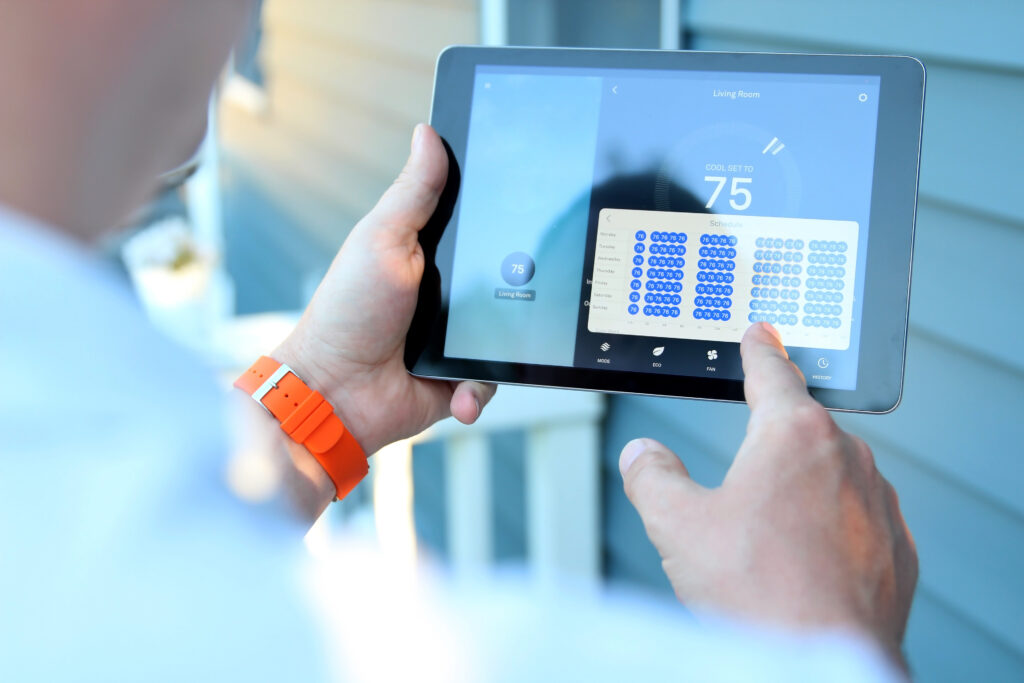Smart Buildings Blog
The latest on all things commercial building automation, energy management, and IoT
Benefits of EMS & BAS in a Quick Serve Restaurant

An EMS/BAS (Energy Management System/Building Automation System) can be installed in a quick service restaurant (QSR) to monitor and control various building systems, including HVAC, lighting, and other equipment.
Implementing an EMS/BAS in a QSR can offer several benefits:
- Energy Efficiency: An EMS/BAS allows for centralized control and optimization of energy-consuming systems. The system can ensure efficient operation and reduce energy waste by integrating HVAC controls, lighting controls, and scheduling. It can lead to significant energy savings, lowering operational costs for the QSR.
- Operational Cost Savings: The ability to monitor and control various systems through an EMS/BAS enables better management of resources. It can result in reduced maintenance costs, optimized equipment performance, and improved operational efficiency. For example, the system can automatically adjust HVAC settings based on occupancy or outdoor temperature, reducing energy consumption during non-peak hours.
- Temperature and Comfort Control: An EMS/BAS provides precise control over HVAC systems, allowing for optimized temperature and humidity levels. This ensures a comfortable dining environment for customers and employees. The system can also adjust settings based on occupancy patterns, helping to maintain comfort while minimizing energy usage during low-traffic periods.
- Fault Detection and Maintenance: An EMS/BAS can monitor the performance of various systems and detect faults or abnormalities. It can generate alerts or notifications when equipment malfunctions or maintenance is required. Doing so facilitates proactive maintenance, reduces downtime, and helps prevent equipment failures that can disrupt restaurant operations.
- Centralized Monitoring and Control: With an EMS/BAS, the QSR management can have centralized visibility and control over multiple locations or areas within the restaurant. This enables remote monitoring, real-time data analysis, and the ability to make adjustments or implement changes from a centralized platform. This level of control can enhance operational efficiency and streamline management processes.
- Environmental Sustainability: By optimizing energy usage, reducing waste, and promoting efficient operation, an EMS/BAS contributes to environmental sustainability. A QSR that implements sustainable practices can enhance its brand reputation, appeal to environmentally conscious customers, and align with corporate social responsibility goals.

Source: iStock
The cost of installing an EMS/BAS in a quick service restaurant can vary depending on several factors, including the size of the restaurant, the complexity of the systems to be integrated, and the specific requirements of the QSR. While upfront costs are associated with the installation, it’s essential to consider the potential long-term benefits and cost savings that an EMS/BAS can provide.
Here are some cost considerations related to installing an EMS/BAS in a QSR:
- Equipment and Installation Costs: The cost of the EMS/BAS equipment itself, including sensors, controllers, actuators, and the necessary infrastructure, can vary based on the size and complexity of the system. Additionally, installation costs will be involved, including wiring, labor, and system commissioning. These costs will depend on factors such as the restaurant’s layout, the number of control points, and the extent of integration required.
- Integration with Existing Systems: If the QSR already has some automation or control systems, integrating the EMS/BAS with these existing systems may involve additional costs. Compatibility and integration requirements must be assessed, and any necessary modifications or upgrades to existing equipment may be needed.
- Customization and Programming: The EMS/BAS may require customization and programming to meet the specific needs of the QSR. This can involve additional costs for software development, system configuration, and fine-tuning to optimize performance and achieve desired outcomes.
- Maintenance and Support: The overall cost analysis should include ongoing maintenance and support costs. Including regular system maintenance, software updates, and technical support to ensure the system operates optimally over time.
Despite the initial costs, an EMS/BAS can provide significant long-term benefits and cost savings, including reduced energy consumption, improved operational efficiency, and preventive maintenance. These benefits can offset the initial investment and deliver a return on investment (ROI) through reduced energy bills and operating costs.
QSR owners or operators must conduct a thorough cost-benefit analysis, considering factors such as energy consumption patterns, utility rates, potential rebates or incentives, and the expected lifespan of the EMS/BAS system. Consulting with energy management experts, building automation professionals, or solution providers can help assess the specific costs and potential savings for a QSR considering the installation of an EMS/BAS.
Implementing an EMS/BAS in a quick-service restaurant offers energy savings, operational cost reduction, improved comfort control, proactive maintenance, and centralized monitoring. It supports efficient resource management, enhances customer experience, and helps drive sustainability efforts.
FSG Smart Buildings specializes in BAS and EMS for quick serve restaurants. Contact us and find out how we can deliver success for your organization today.
Interested in building automation and helping customers build smarter buildings? Come work for us! FSG Smart Buildings is hiring talented people looking for a great career in building automation.
More from the Blog

Turning ESG Goals into Documented Wins with Building Automation
Turning ESG Goals into Documented Wins with Building Automation
The Evolution of Investing For as long as people have been investing in companies, companies have been aware that keeping…

The Benefits of Native Integration and Thermostat Control
The Benefits of Native Integration and Thermostat Control
HVAC native BAS (Building Automation System) integration control refers to the seamless integration of HVAC (Heating, Ventilation, and Air Conditioning)…

What are the Benefits of Utilizing Lighting Controls?
What are the Benefits of Utilizing Lighting Controls?
Lighting control refers to the technology and systems used to regulate and manage artificial lighting in various environments. It involves…
